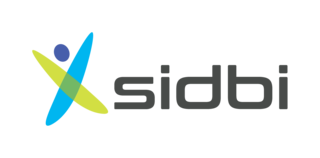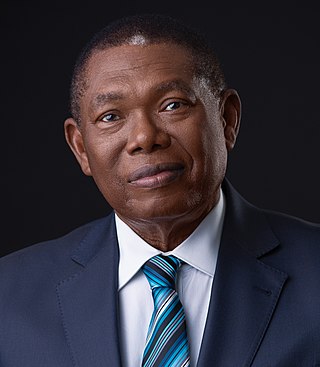Related Research Articles

The European Bank for Reconstruction and Development is an international financial institution founded in 1991. As a multilateral developmental investment bank, the EBRD uses investment as a tool to build market economies.
The Reconstruction Finance Corporation (RFC) was an independent agency of the United States federal government that served as a lender of last resort to US banks and businesses. Established in 1932 by the Hoover administration to restore public confidence in the economy and banking to their pre-Depression levels, the RFC provided financial support to state and local governments, recapitalized banks to prevent bank failures and stimulate lending, and made loans to railroads, mortgage associations, and other large businesses.

The European Investment Bank (EIB) is the European Union's investment bank and is owned by the 27 member states. It is the largest multilateral financial institution in the world. The EIB finances and invests both through equity and debt solutions companies and projects that achieve the policy aims of the European Union through loans, equity and guarantees.
Small and medium-sized enterprises (SMEs) or small and medium-sized businesses (SMBs) are businesses whose personnel and revenue numbers fall below certain limits. The abbreviation "SME" is used by international organizations such as the World Bank, the OECD, European Union, the United Nations, and the World Trade Organization (WTO).

The Business Development Bank of Canada is a Crown corporation and national development bank wholly owned by the Government of Canada, mandated to help create and develop Canadian businesses through financing, growth and transition capital, venture capital and advisory services, with a focus on small and medium-sized enterprises.

The Export–Import Bank of the United States (EXIM) is the official export credit agency (ECA) of the United States federal government. Operating as a wholly owned federal government corporation, the bank "assists in financing and facilitating U.S. exports of goods and services", particularly when private sector lenders are unable or unwilling to provide financing. Its current chairman and president, Reta Jo Lewis, was confirmed by the Senate on February 9, 2022.

China Development Bank (CDB) is a policy bank of China under the State Council. Established in 1994, it has been described as the engine that powers the national government's economic development policies. It has raised funds for numerous large-scale infrastructure projects, including the Three Gorges Dam and the Shanghai Pudong International Airport.

The Development Bank of the Philippines (DBP) is a state-owned development bank headquartered in Makati, Philippines. It is primarily tasked to provide banking services to cater to the needs of agricultural and industrial enterprises. It has 146 branches including 14 branch lite units.
The IDBI Bank Limited is a Scheduled Commercial Bank under the ownership of Life Insurance Corporation of India (LIC) and Government of India. It was established by Government of India as a wholly owned subsidiary of Reserve Bank of India in 1964 as Industrial Development Bank of India, a Development Finance Institution, which provided financial services to industrial sector. In 2005, the institution was merged with its subsidiary commercial division, IDBI Bank, and was categorised as "Other Development Finance Institution" category. Later in March 2019, Government of India asked LIC to infuse capital in the bank due to high NPA and capital adequacy issues and also asked LIC to manage the bank to meet the regulatory norms. Consequent upon LIC acquiring 51% of the total paid-up equity share capital, the bank was categorised as a 'Private Sector Bank' for regulatory purposes by Reserve Bank of India with effect from 21 January 2019. IDBI was put under Prompt Corrective Action of the Reserve Bank of India and on 10 March 2021 IDBI came out of the same. At present direct and indirect shareholding of Government of India in IDBI Bank is approximately 95%, which Government of India (GoI) vide its communication F.No. 8/2/2019-BO-II dated 17 December 2019, has clarified and directed all Central/State Government departments to consider IDBI Bank for allocation of Government Business. Many national institutes find their roots in IDBI like SIDBI, EXIM, National Stock Exchange of India, SEBI, National Securities Depository Limited. Presently, IDBI Bank is one of the largest Commercial Banks in India.

The African Development Bank Group is a multilateral development finance institution, headquartered in Abidjan, Ivory Coast since September 2014. The AfDB is a financial provider to African governments and private companies investing in the regional member countries (RMC).

Small Industries Development Bank of India (SIDBI) is the apex regulatory body for overall licensing and regulation of micro, small and medium enterprise finance companies in India. It is under the jurisdiction of Ministry of Finance, Government of India headquartered at Lucknow and having its offices all over the country.
Before Uganda's independence in 1962, the main banks in Uganda were Barclays ; Grindlays, Standard Bank and the Bank of Baroda from India. The currency was issued by the East African Currency Board, a London-based body. In 1966, the Bank of Uganda (BoU), which controlled the issue of currency and managed foreign exchange reserves, became the central bank and national banking regulator. The government-owned Uganda Commercial Bank and the Uganda Development Bank were launched in the 1960s. The Uganda Development Bank is a state-owned development finance institution, which channeled loans from international sources into Ugandan enterprises and administered most of the development loans made to Uganda.

The post-2008 Irish banking crisis was when a number of Irish financial institutions faced almost imminent collapse due to insolvency during the Great Recession. In response, the Irish government instigated a €64 billion bank bailout. This then led to a number of unexpected revelations about the business affairs of some banks and business people. Ultimately, added onto the deepening recession in the country, the banks' bailout was the primary reason for the Irish government requiring IMF assistance and a total restructuring of the government occurred as result.
The Uganda Development Bank Limited (UDBL) is a government-owned development financial institution in Uganda.
The Industrial Investment Bank of India (IIBI) was a development finance institution under the ownership of Ministry of Finance, Government of India. It operated from its inception in 1971 until it was closed down by the Indian government in 2012. It was a development finance institution with the aim of rehabilitating sick industrial companies in India. IIBI offered a wide range of products and services, including term loan assistance for project finance, short duration non-project asset-backed financing, working capital/other short-term loans to companies, equity subscription, asset credit, equipment finance and investments in capital market and money market instruments.

Chuku Wachuku, a royal prince of Ngwaland, is a United States educated Nigerian economist, politician, statesman, servant leader, business analyst, management expert and specialist on entrepreneurship development and SMEs: Small and Medium Enterprises. He is first Director-General of Ngwa origin at Federal Government of Nigeria major parastatal; NDE: National Directorate of Employment.

Bank of Industry Limited is Nigeria's oldest and largest Development Finance Institution (DFI) currently operating. It is owned by the Ministry of Finance Incorporated (MOFI) Nigeria (94.80%), the Central Bank of Nigeria (CBN) (5.19%) and private shareholders (0.01%).

The National Development Bank is a Polish national development bank with headquarters in Warsaw, is a state-owned bank in Poland, operating under a dedicated bill of law. Its main tasks are: support and servicing of export transactions, issuing governmental guarantees, and support of housing.
The ECOWAS Bank for Investment and Development(EBID) is a leading regional investment and development bank, owned by the fifteen Economic Community of West African States (ECOWAS) Member States.
The Nigeria national debt or simply national debt of Nigeria is the total amount of money that the Federal Government of Nigeria owes to its creditors, both domestic and external. The national debt is composed of two main components: debt held by the public and debt held by government accounts. Debt held by the public includes Treasury securities held by investors outside the federal government, such as individuals, corporations, the Central Bank of Nigeria, and foreign, state and local governments. Debt held by government accounts includes non-marketable Treasury securities held in accounts of programs administered by the federal government, such as the Nigeria Social Insurance Trust Fund. The national debt is measured as the face value of the outstanding Treasury securities at a given point in time.
References
- ↑ "Nerfund | About Nerfund". 6 February 2019. Archived from the original on 6 February 2019. Retrieved 16 February 2023.
- ↑ "National Economic Reconstruction Fund Act". www.ecolex.org. Retrieved 16 February 2023.
- ↑ "Bank of Industry Limited – United Nations Environment – Finance Initiative" . Retrieved 16 February 2023.
- ↑ "Nigeria appoints new managing director for reconstruction fund, NERFUND". www.premiumtimesng.com. Retrieved 16 February 2023.
- ↑ https://www.vanguardngr.com/2017/10/n17-5bn-bad-loans-fg-shutdown-nerfund/
- ↑ Silas, Don (6 November 2017). "Nigerian govt explains closure of NERFUND". Daily Post Nigeria. Retrieved 16 February 2023.